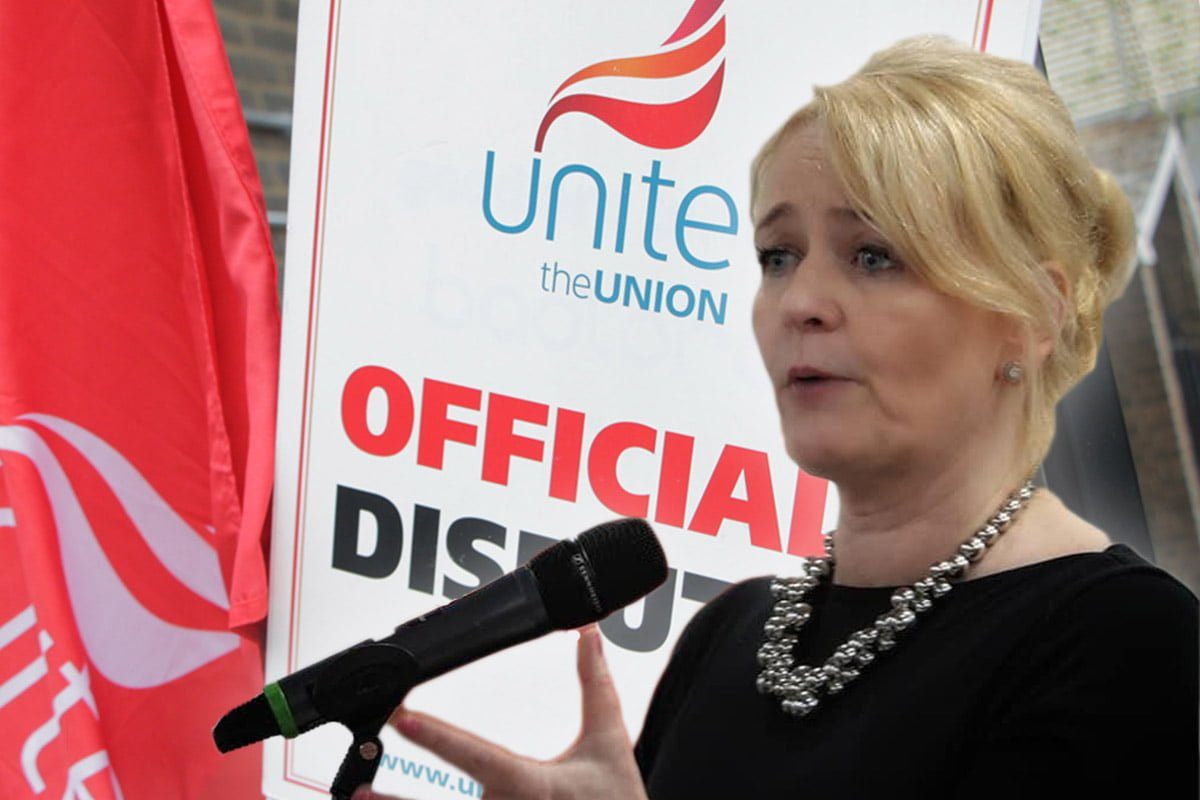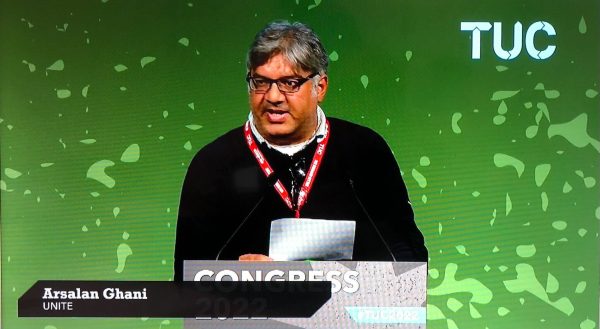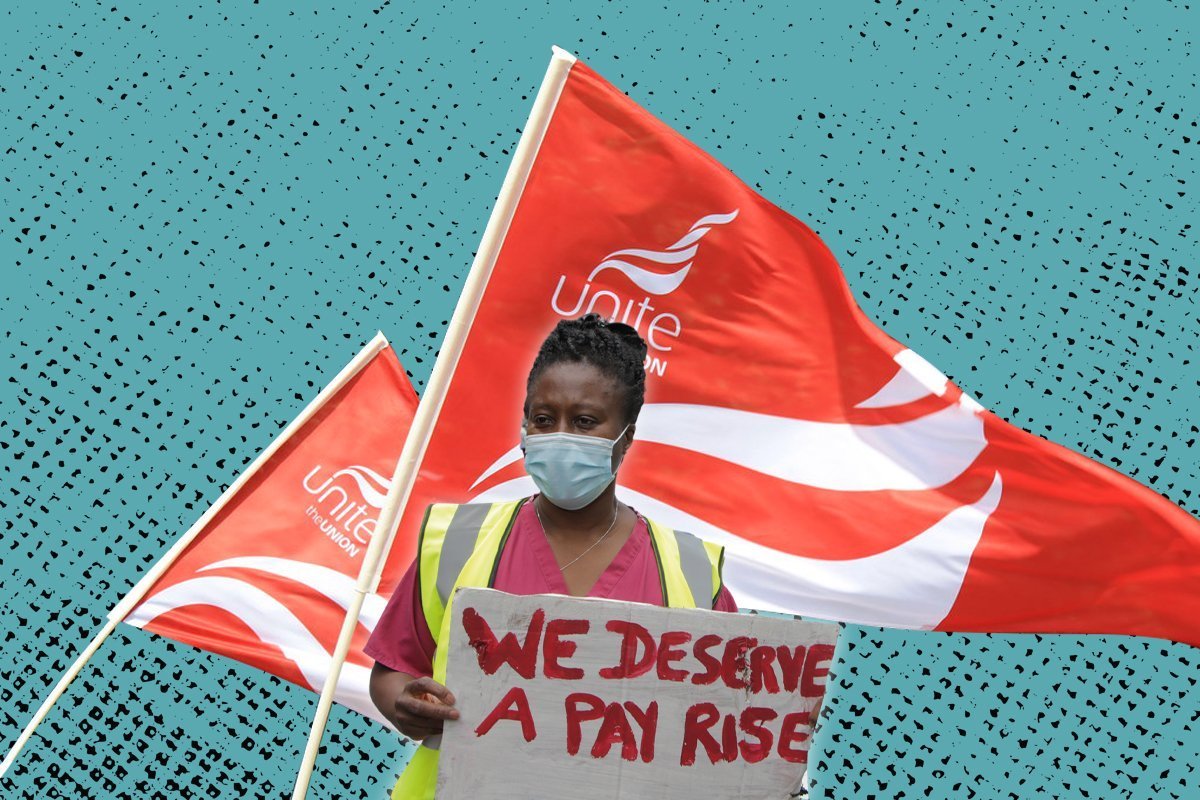The coming months will see elections for the executive council of one of Britain’s largest unions, Unite.
With Britain entering a period of intensified class struggle, the question of who sits on Unite’s leading body is no small matter.
Branch nominations for candidates are already underway. The outcome of this election – to be announced in May – will significantly shape the path of the whole trade union movement.
Workers’ candidate
Unite has undergone important changes over the last couple of years, under Sharon Graham’s leadership. In fact, her very election was an indication that a shift in mood was already taking place within the rank-and-file membership.
Ordinary members of the union had backed someone who was initially considered an underdog candidate. Graham gained this support on the basis of her promise to fight for “jobs, pay, and conditions”.
Internally, she also committed to “streamlining the bureaucracy”, while giving more power to shop stewards and reps. Her pitch as the workers’ candidate gained a big echo.
With the political front blocked due to Labour’s takeover by Starmer and the right wing, it was clear that workers were – and still are – looking to their unions in order to fight back
‘United Left’
 Since then, under great pressure from below, the union has been involved in a tremendous level of industrial activity. Hundreds of disputes have been fought and won with Graham’s backing. Such victories have also been achieved by workers deploying militant methods, including secondary picketing.
Since then, under great pressure from below, the union has been involved in a tremendous level of industrial activity. Hundreds of disputes have been fought and won with Graham’s backing. Such victories have also been achieved by workers deploying militant methods, including secondary picketing.
The executive committee (EC) of the union, however, remains in the hands of the old ‘United Left’ bureaucracy – those who led the union under former general secretary Len McCluskey.
In the past, this United Left leadership was prominent in the battle against the right wing of the labour movement, both in Unite and in the Labour Party.
Nevertheless, their bureaucratic outlook led to them making grave errors along the way: opposing mandatory reselection of Labour MPs, and blocking the party’s reintroduction of Clause IV.
Consequently, the United Left (UL) has long become ossified. And now these same leaders are playing a negative role.
Negotiation vs action
There were clear signs of this during the Unite general secretary elections, with UL candidate Steve Turner speaking proudly in the language of class compromise: calling for negotiations with the Tories and the bosses, and promising to work alongside establishment champion Keir Starmer.
Graham, by contrast, with rank-and-file members behind her, has consistently spoken in the language of class war – against the Tory government and the employers. Faced with Tories’ latest anti-union threats, for example, the Unite general secretary has threatened illegal strike action.
She has also launched investigations into potential collusion by Unite officials in the blacklisting scandal, and into the construction of a hotel and conference centre that took place during McCluskey’s reign, which may have involved fraudulent activity.
These EC elections are now seeing this split within the union coming out into the open and crystallising.
On the one side is a bureaucratic layer that bases itself on the politics of class collaborationism. On the other are those backing Graham’s calls for industrial militancy and action against the bosses, the Tories, and Starmer’s Labour.
For a militant, democratic union!
 A slate of EC candidates is standing in these elections, composed of grassroots activists who back the changes that Graham wants to make. This includes Arsalan Ghani, a Socialist Appeal supporter and longstanding trade unionist, who is running for the education sector seat.
A slate of EC candidates is standing in these elections, composed of grassroots activists who back the changes that Graham wants to make. This includes Arsalan Ghani, a Socialist Appeal supporter and longstanding trade unionist, who is running for the education sector seat.
We support the aims of democratising the union and turning it into a truly fighting weapon for workers. Indeed, we think that the best guard against any corruption and class collaboration is to extend democracy into every aspect of the union – not just to ‘streamline’ bureaucracy, but to do away with it altogether.
This means ensuring that all full-time official positions in the union are elected, for a set period of time, and subject to recall. Furthermore, these officials should take the same average wage as the members they represent.
Above all, we need to bring these campaigns into the rank and file, and establish an open Broad Left that involves members in the union’s discussions, debates, and decisions.
In reality, we can already see a new Broad Left in formation – catalysed by Graham’s general Secretary campaign, and steeled by the struggles that branches and rank-and-file members have been fighting.
This should now be formalised, so that grassroots activists can help to transform our union into a militant, democratic one. That is exactly what Unite must become, if it is to really fight for our class in the stormy period ahead.






